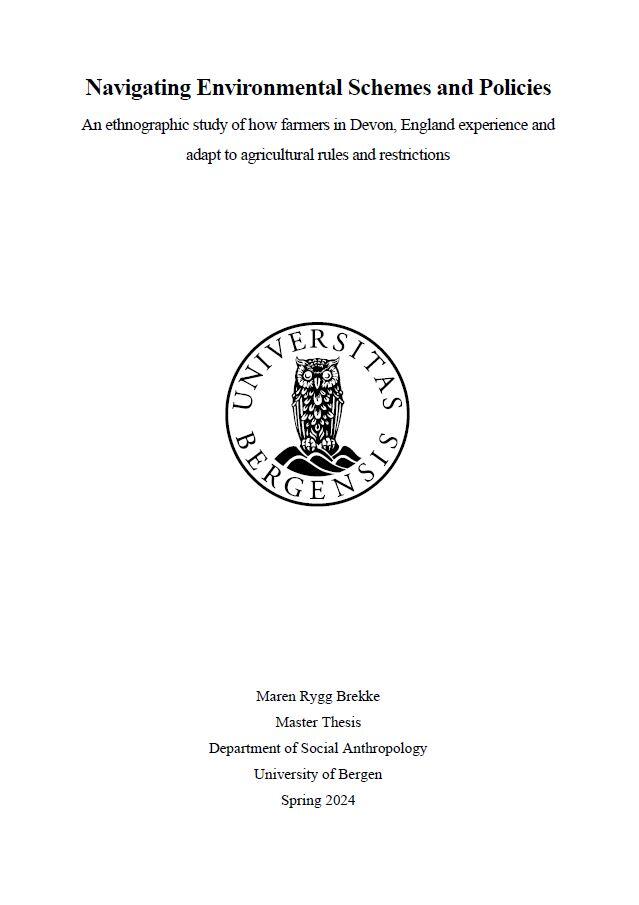Navigating Environmental Schemes and Policies: An ethnographic study of how farmers in Devon, England experience and adapt to agricultural rules and restrictions
Main content
Master's thesis submitted at the Department of Social Anthropology, spring 2024.
By: Maren Rygg Brekke
Supervisor: Professor Ståle Knudsen
After Brexit, the UK decided on pursuing to reach ‘net zero’ emissions by 2050. In doing this, they turned away from the existing EU subsidy scheme – the Common Agricultural Policy (CAP) – and started creating their own schemes to subsidize farmers for their work. These schemes are called the ‘Environmental Land Management’ (ELM) schemes and are mainly focused on making farmers manage their land in more sustainable ways. In this thesis I explore how farmers in Devon, England experience and adapt to the changing environmental policies, schemes, and restrictions that are imposed on them by both the government and non-state actors. I focus on how these policies and schemes coming from actors above the farmers standardize them and ignore their local knowledge and needs. I argue that this way of creating and enforcing schemes and policies does not account for the different variations of each farm, which in turn can have negative effects. In this thesis, I show how the farmers in Devon wish to practice sustainable agriculture – after all, they are greatly affected by climate change – but find it difficult because of the continuously changing schemes and policies. I explore how farmers adapt to and attempt to understand these schemes and policies and how they go about restricting them. Furthermore, I argue that non-state actors – Arla and the Soil Association, respectively – act in a state-like way by imposing restrictions and schemes similar to that of the state, and I investigate the differences between restrictions from the state and non-state actors. Finally, I attempt to show how the farmers’ physical work on their land as well as the passing down of knowledge are important in the creation of their local and tacit knowledge and how family tradition drives a lot of this knowledge.
